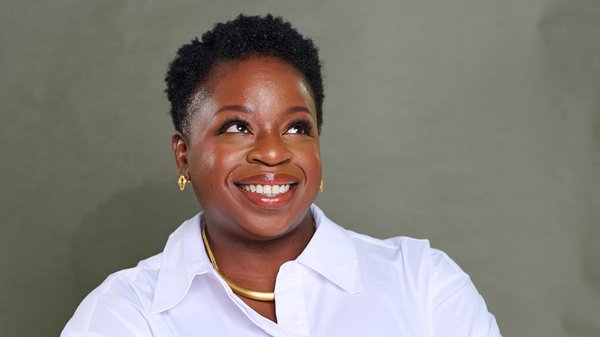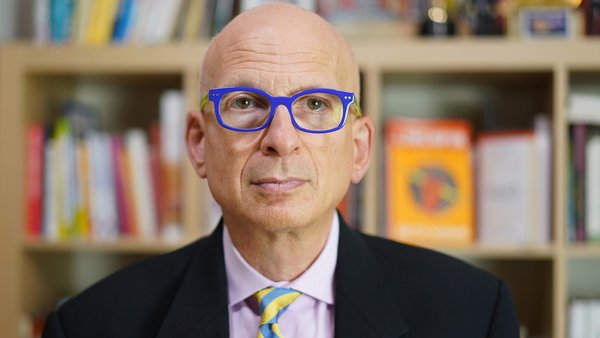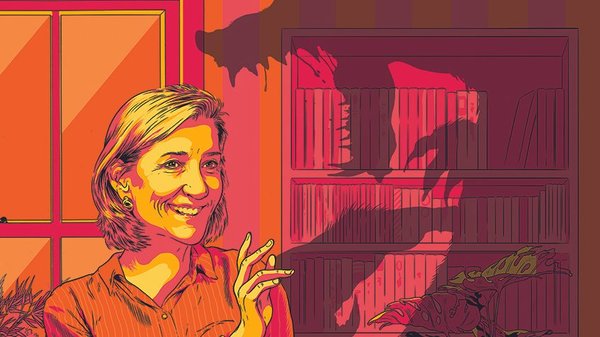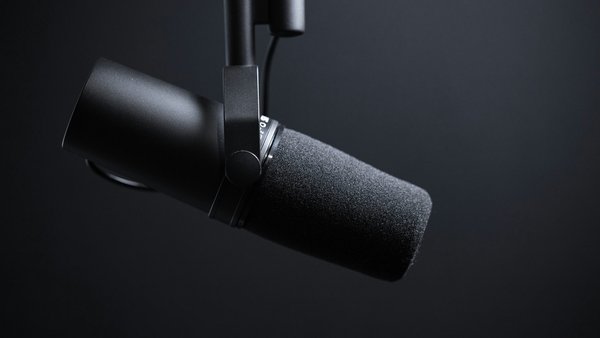Behavioural economist Dan Ariely talks brands and bad decisions with Contagious /
Dan Ariely, bestselling author and behavioural economics professor, on the basis of bad decisions and the brands, like Apple and Amazon, that understand influence
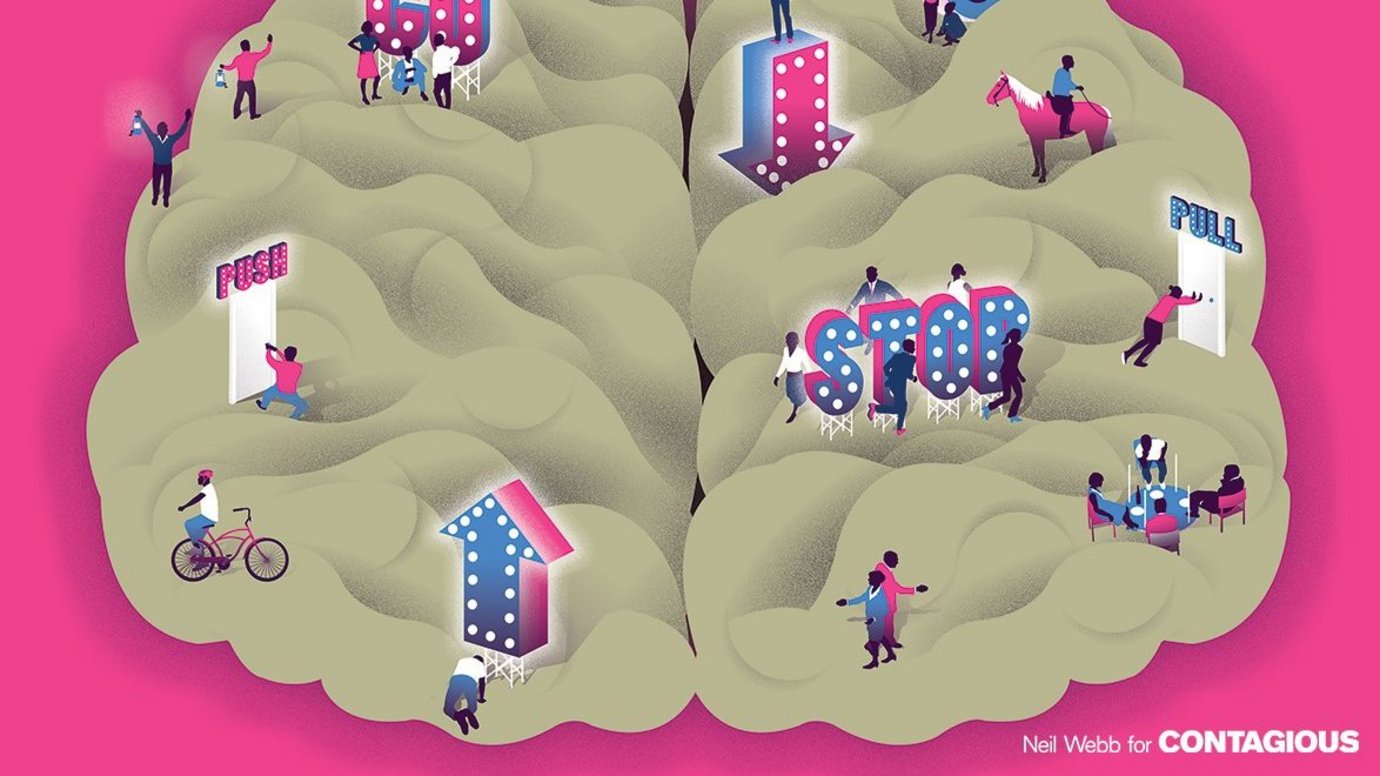
This is an excerpt of a feature published in issue 60 of Contagious magazine. To find out more about how you can become a member of Contagious and gain access to lots more great content, click here.
Most people are astoundingly irrational when it comes to decision-making, both consciously and unconsciously, says leading social scientist Dan Ariely. He had a painful introduction to irrationality as a teenager when he was hospitalised after sustaining third-degree burns on 70% of his body. As he describes in his book Predictably Irrational, his nurses would change his bandages by ripping them off quickly – believing this to be the best approach – despite his protestations.
‘That made it clear that there are lots of people with good intentions, like my nurses, who were acting out of a desire to help, but not making the right decisions,’ says Ariely. ‘That’s what started me thinking this way.’
As a professor of psychology and behavioural economics at Duke University, North Carolina, Ariely has spent his career uncovering human irrationalities and explaining why people make wrong choices. Ahead of the release of his latest book, graphic novel Amazing Decisions: The Illustrated Guide to Improving Business Deals and Family Meals, Contagious talks to Ariely about the role of brands in society.

What prompted you to take on bad decision-making?
I see lots of things I don’t like in the world. Human beings are not reaching their full potential even though we have a tremendous capacity for kindness, generosity, collaboration and for progress. I want to identify the things that are holding us back. That isn’t to say I don’t recognise all the wonderful things that are happening. But I think we can achieve more, and relatively easily, if we only change the environment.
One of the main findings from behavioural economics is that environments matter. You put people in one situation, they act one way, you put people in a different situation, they act a different way. As a social scientist, that is an amazing thing because all of a sudden you realise, if I change the environment, I can get people to behave differently – hopefully in a better way. I know from research that if I talk to people one by one and try to change behaviour it will be very slow, but if I can change systems, I can make big, meaningful changes. That is my hope.
Dan Ariely
What role do you think brands have in terms of influencing human behaviour?
Brands give us stories that we can communicate to the outside world about who we are. I drive a Smart car, a tiny little car. It’s a communication mechanism through which I tell the world, ‘Look, I’m an environmental guy.’ Although, not environmental enough to buy a Prius. And I also tell myself something. I think the role of brands is telling stories to other people, which is called ‘signalling’, and telling ourselves stories, which is called ‘self-signalling’.
We do lots of things to tell ourselves stories about ourselves. We walk on the street and we see a beggar and we give them $5. The moment you give the beggar $5, you say to yourself, ‘I’m a good person.’ You are still the same person, you just gave $5, which is very nice but this feedback between what we do and how we think about ourselves is important for ourselves. It’s not just about what other people think about us, it’s what we think about ourselves. Brands fulfill a big part of that or can fulfill a big part of it.
Dan Ariely
What are some examples of brands that have tapped into behavioural science to influence people?
There is no question that Apple is one of the best. One of the things that they do, which many companies don’t understand, is they tell you how magical their product is. So, with the MacBook Air they say, ‘Look at the hinges.’ Without them telling you to, you wouldn’t have looked at the hinges. Or they say, ‘Look at this aluminium alloy.’ I would have never known it was aluminium alloy. I wouldn’t have paid attention. But not only are they telling us about this, they’re creating a language to understand how magical their products are.
The wine industry does that brilliantly too. Winemakers basically make fermented grape juice and they tell us about complexity, acidity; they sell us different cups to drink it in. In the process, we swirl the wine, we look at it in the light, we talk about it, we slowdown, we enjoy it more.
Taking qualities of products and emphasising them and creating a language and culture around them is amazing. I think Tesla has been very, very good at this. Amazon also does an amazing job. Amazon is kind of a strange brand because not everyone knows what Amazon is exactly, yet everybody knows their customer service is impeccable. If something goes wrong, most people assume Amazon will make it right. I think they have higher trust than Apple.
Amazon once sent me a book of stamps as a gift. That year the price of stamps went up from 22 cents to 23 cents. Amazon sent me a letter and said, ‘Here are 10 1 cent stamps so you can use your old 22 cent stamps.’ I thought that this was the best use of 10 cents ever. It was only 10 cents but it brilliantly reminded me that Amazon is thinking about me.
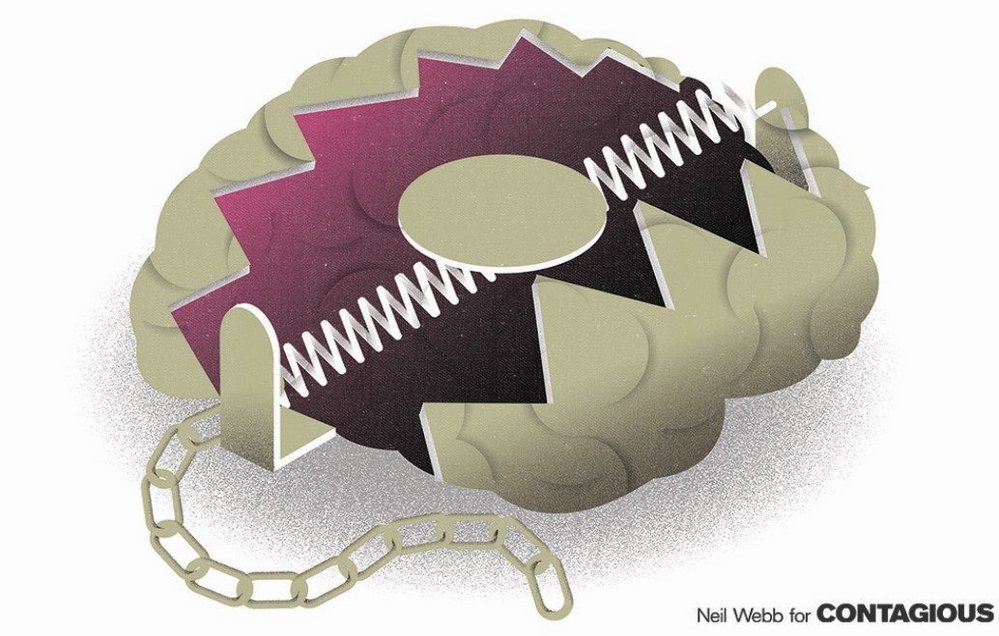
What role do brands play in society?
Brands do lots of different things. One thing that they do is create shortcuts. You say ‘Sony’, I know a lot of things about the product already. I know it’s small, I know it’s mid-range quality, I know it’s probably sleek, I know the technology is good. You tell me ‘Fiat’, I know some things about that too. The best brands are shortcuts. That is very important and helpful for people.
Brands signify social desirability and are connection points. They are also signalling: self-signalling and signalling to others. Every brand owner needs to think about which element of that mix of branding they want to utilise – and which one they can. So, if we have a brand for a car, it’s incredibly visible. If we have a brand for a lipstick, it’s not so visible. A deodorant brand is certainly not very visible (aside from to the person in their bathroom). All of those things matter. I wish people would start thinking about the nuances of brands. Porsche and Tide are not the same. Yes, they are both brands but they don’t work in the same way.
You are the chief behavioural officer at Lemonade, a startup that describes itself as harnessing the ‘power of behavioural economics’ to deliver an insurance experience that is ‘downright delightful’. Insurers are not usually described as ‘delightful’, what makes Lemonade different?
When I started at Lemonade, I felt trust was broken in the insurance industry. The consumer must pay before something bad happens, like an accident. Then the consumer wants the insurance company to pay. And what does the insurance company want? Not to pay. It’s a zero-sum game. This is what we call a conflict of interest and we know that conflicts of interest are corrosive. We also know that they change our perspective. Conflicts of interest make good people do bad things like exaggerate and cheat when it comes to making claims. Insurance companies know that people cheat. So, they make it difficult and complex with long forms and try to reject our claims. It is a bad system. My proposal was to change it into a three-party game: the consumers, the insurance company and a charity like the World Wildlife Fund. The people pay Lemonade. Lemonade takes a fixed amount and then Lemonade pays claims. If there’s money left over in the pool; it goes to the charity.
Not long after Lemonade started, somebody wrote to us saying, ‘You insured my apartment. I filed a claim. You paid me back for my stolen laptop. Turns out nobody stole it, I just misplaced it. How do I return the money?’ On that day, I called everybody I know that works for big dominant insurance firms. I basically told them that this is the value of real trust – and it is worth a lot.
Contagious is a resource that helps brands and agencies achieve the best in commercial creativity. Find out more about Contagious membership here.
Want more of the same? /
We don’t just write about best-in-class campaigns, interviews and trends. Our Members also receive access to briefings, online training, webinars, live events and much more.
